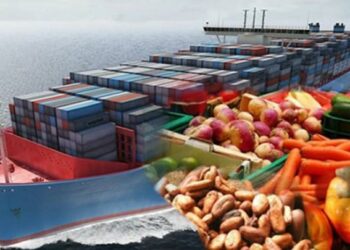Nigeria is losing approximately $363 million each year due to the European Union’s ban on Nigerian beans exports, a consequence of unsafe pesticide residues, according to the Alliance for Action Against Pesticides in Nigeria (AAPN).
Speaking at a press conference in Abuja on Thursday, Prof. Simon Irtwange, Co-Founder of AAPN, warned that more than 76 per cent of Nigeria’s agriculture exports are rejected by the EU for safety violations stemming from pesticide contamination.
The media briefing was themed: “Stop the Spread of Highly Hazardous Pesticides (HHPs).”
“The EU ban has cost Nigeria hundreds of millions of dollars annually, and the rejection trend extends beyond beans to include sesame seeds, melon seeds, dried fish, peanut chips, groundnut, palm oil, and yam,” Irtwange said.
He noted that the trade ban has not only led to massive financial losses but has also severely damaged Nigeria’s global reputation as a food-exporting nation.
According to AAPN, Nigeria consumes about 23,400 metric tonnes of pesticides annually. As of 2017, farmers and agro-companies were spending $400 million yearly on pesticides, based on data from the Nigerian Stored Products Research Institute.
Irtwange revealed that Nigeria currently permits the use of over 400 pesticide formulations — more than half of which have been banned in the EU, United States, and several Asian countries for being classified as highly hazardous.
He added that over 80 per cent of pesticides distributed to Nigerian smallholder farmers have either been banned or phased out globally, citing health issues such as respiratory distress, nausea, vomiting, skin rashes, and long-term risks including cancer and neurotoxicity.
Calling for urgent action, Irtwange urged federal lawmakers, agricultural ministries, and development partners to promote the adoption of safer alternatives like bio-pesticides, organic fertilizers, and agroecological farming methods.
He recommended integrating these alternatives into public programmes such as constituency projects, input support schemes, and extension services to reach vulnerable smallholder farmers.
“The National Assembly should pass a pesticide and agroecological control bill to safeguard public health and the environment,” Irtwange said. “This bill must ensure transparency, stakeholder participation, and robust regulatory oversight.”
Also speaking at the event, Mrs. Oreoluwa Adelakun, Legal Lead at AAPN, criticised the continued distribution of toxic agrochemicals through government channels, particularly constituency projects.
She noted that farmers and communities often lack awareness about the long-term health and environmental consequences of these chemicals, which are now polluting rivers, degrading soil, and endangering children, pregnant women, and the wider population.
“Legislators and regulatory bodies must take immediate steps to eliminate highly hazardous pesticides from circulation in Nigeria,” Adelakun said.





